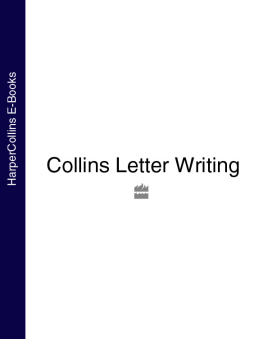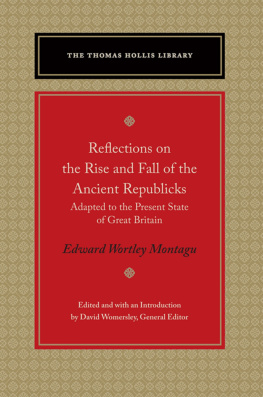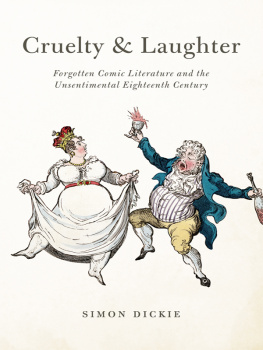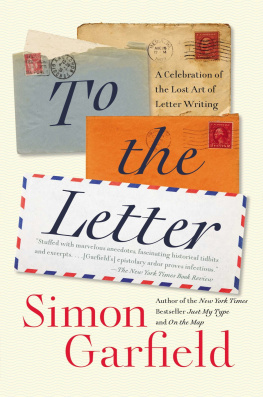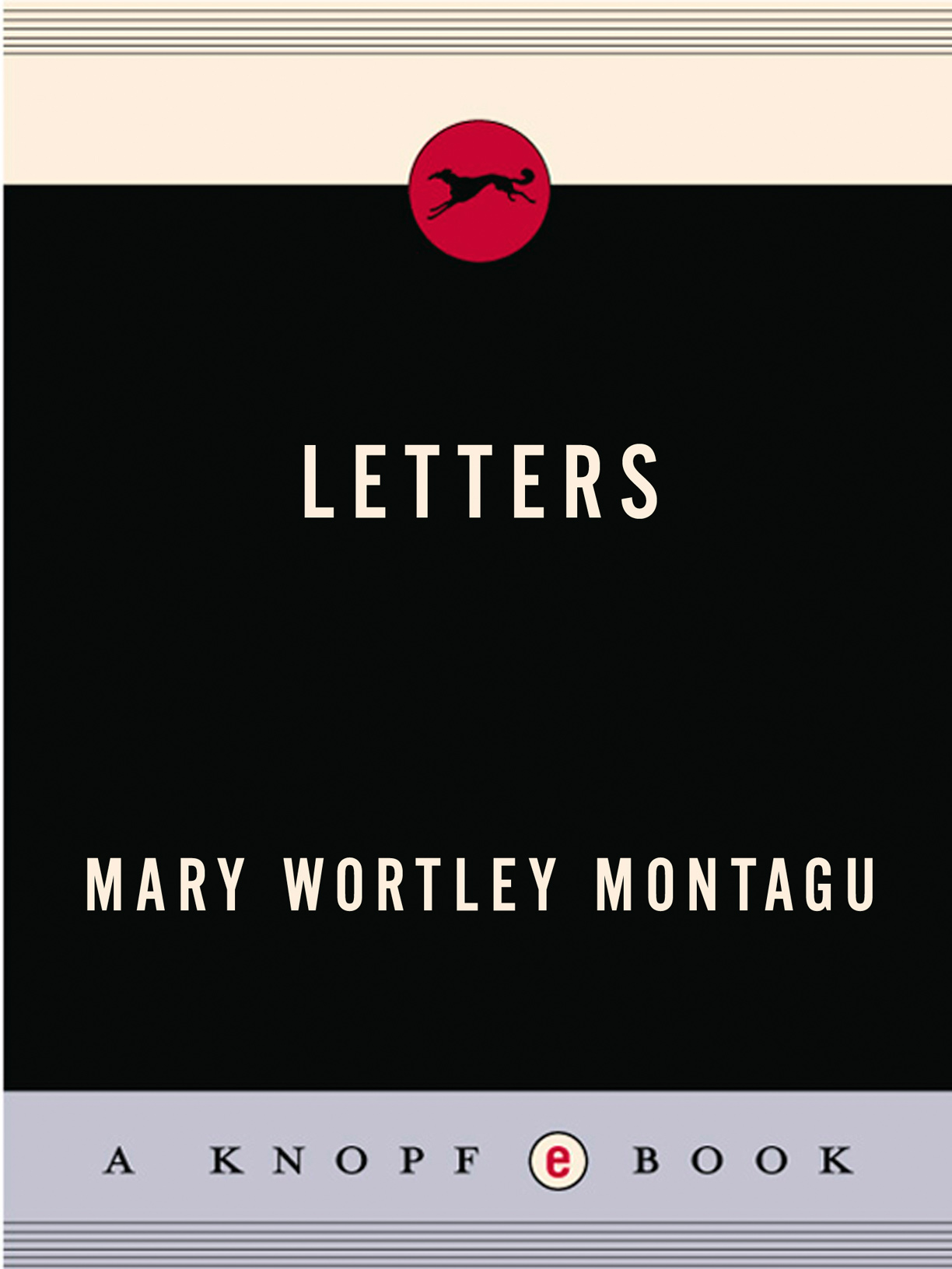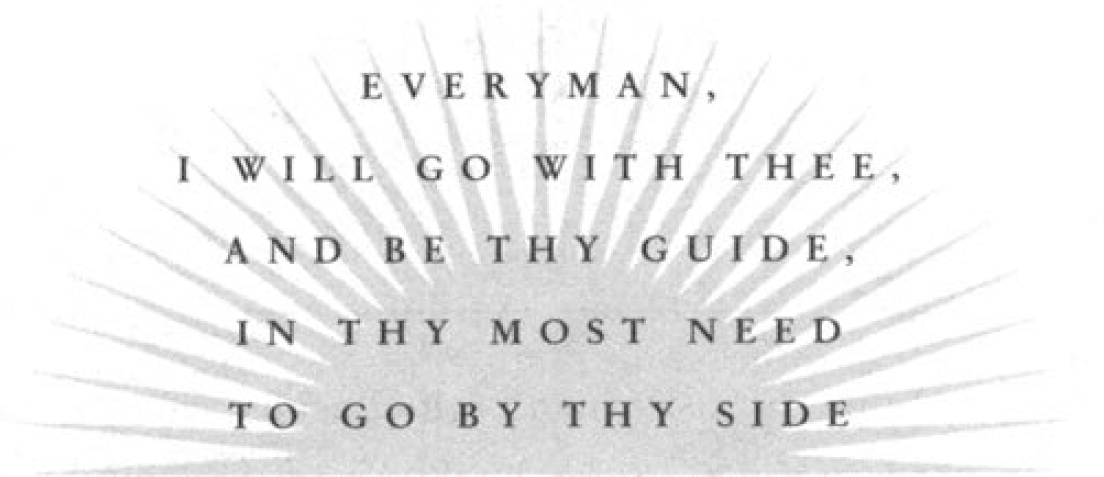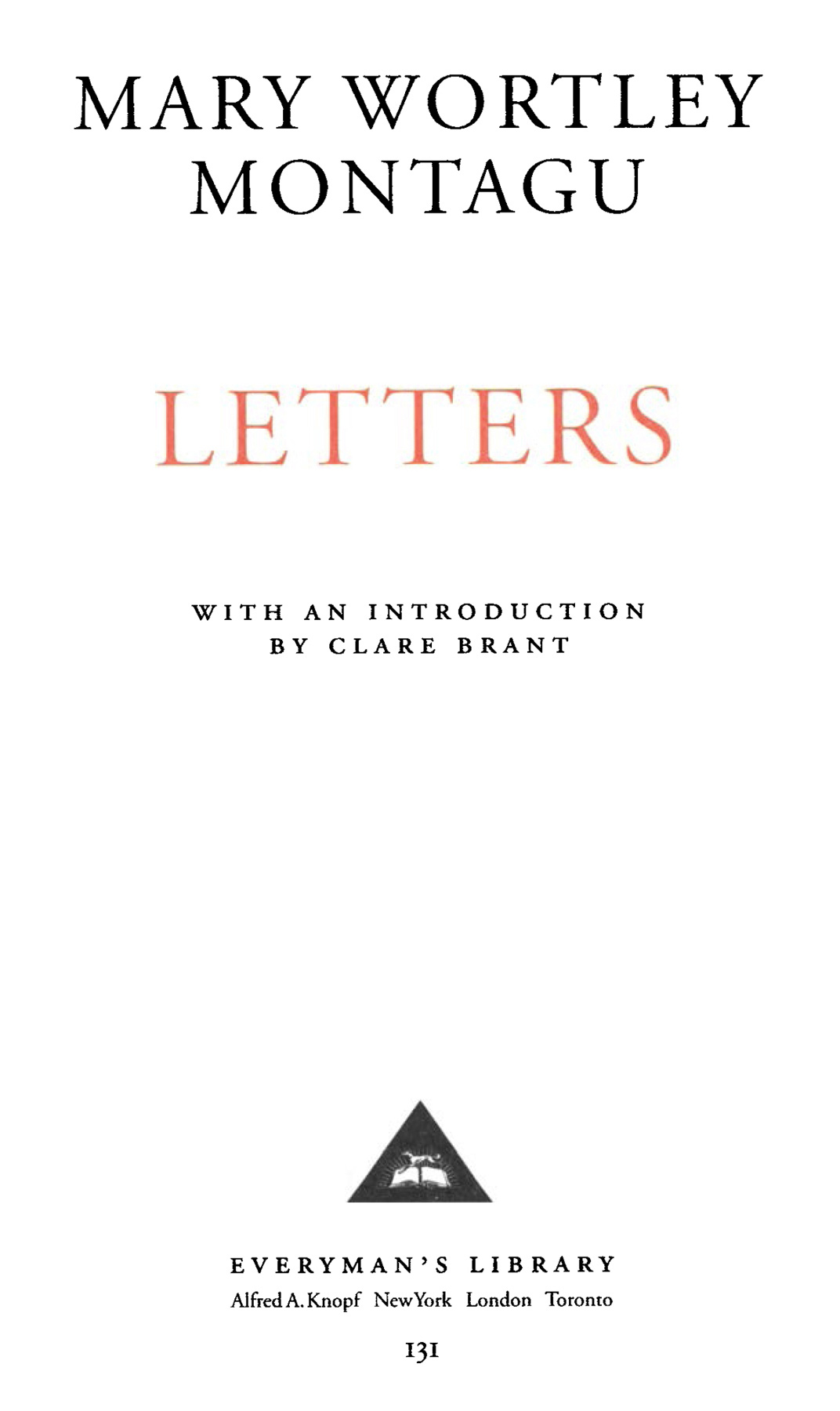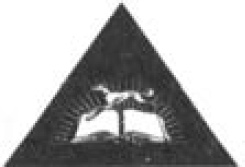MARY WORTLEY MONTAGU
LETTERS
Immensely learned, self-educated in an era when formal schooling was denied to women, Mary Wortley Montagu was an admired poet, a consistently scandalous doyenne of eighteenth-century London society, and, in a period when letter-writing had been elevated to an art form, one of the greatest letter-writers in the English language. Her epistles, meant for both public and private consumption, are the product of a mind distinguished by its adventurousness, its indifference to convention, and its eagerness not only to acquire knowledge but to convey it with unmitigated style and grace.
THIS IS A BORZOI BOOK
PUBLISHED BY ALFRED A. KNOPF
First included in Everymans Library, 1906
Introduction, Bibliography and Chronology Copyright 1992 by
Everymans Library
Typography by Peter B. Willberg
Second printing (US)
All rights reserved under International and Pan-American Copyright Conventions. Published in the United States by Alfred A. Knopf, a division of Random House, Inc., New York, and simultaneously in Canada by Random House of Canada Limited, Toronto. Distributed by Random House, Inc., New York. Published in the United Kingdom by Everymans Library, Northburgh House, 10 Northburgh Street, London EC1V0AT, and distributed by Random House (UK) Ltd.
US website: www.randomhouse.com/everymans
eBook ISBN: 978-0-375-71286-9
ISBN: 0-679-41747-8 (US)
1-85715-131-3(UK)
A CIP catalogue reference for this book is available from the British Library
Library of Congress Cataloging-in-Publication Data
Montagu, Mary Wortley, Lady, 16891762.
[Correspondence]
Letters/Lady Mary Wortley Montagu.
p. cm.(Everymans library)
ISBN 0-679-41747-8
1. Montagu, Mary Wortley, Lady, 16891762Correspondence. 2. Diplomats wivesGreat BritainCorrespondence. 3. Authors, English18th centuryCorrespondence. I. Title.
| DA501.M7A4 1992 | 92-52913 |
| 941.072092dc20 | CIP |
v3.1
CONTENTS
INTRODUCTION
When Lady Mary Wortley Montagu wrote to her sister that her letters would one day be as valuable as Madame de Svigns, she was neither joking nor boasting but claiming in all seriousness a position for herself as a writer. As with many women writers, however, her literary reputation has too often been fluctuating or forgotten. Where she was remembered it was usually through the hostile views of Pope or Walpole, or as Byrons benevolent but patronizing the charming Mary Montagu. More recent reclamations of her as an intrepid traveller or proto-feminist have at least restored some colour to her. But it still seems to be her personality rather than her writings which authorize our interest in her.
Part of the difficulty of promoting her as a writer lies in the fragmentation of what she wrote. What could have been a fascinating text, a diary she kept from her marriage to her death, was burnt by her daughter. Lady Mary herself was no slouch with matches: she wrote a history of her own times but burnt each sheet as she finished it. Among her surviving productions are a series of satirical town eclogues; a Whig periodical, The Nonsense of Common-Sense; essays on political corruption, on the importance of inoculation against smallpox, on men and marriage; an epilogue to Addisons play Cato; a comedy; romance tales of the court of Louis XIV; a memoir of some dealings in Italy; much juvenilia, including an autobiography; a long fairy tale in French; a translation of Epictetus Enchiridion; poems, lampoons and occasional verse on people, objects, situations and relations. An edition of her works in 1803 filled five volumes. Some of these productions are difficult to read now when little interest is taken in imitations, translations and literary exercises. One could give her the literary character of a wit, but this has limitations. Wit is vulnerable to history because bon mots can be unreliably recorded or attributed, because in-jokes tend to sink under their own topicality, and because in the case of the early eighteenth century, a tendency to callousness looks with hindsight like a failure of imagination rather than its triumph. Moreover, what for canonical writers is likely to be seen as literary diversity is for other writers, especially women, construed as miscellaneous or minor writing. Hence a defensive recourse to personality as a means of bridging gaps between works and turning the topical into the transcendent.
Factors of class and genre also affect Lady Marys position as a writer; both, like diversity, are inflected by gender. The intricacies of class at this period meant that publication, and to some extent writing itself, were occupations of questionable seemliness for aristocratic women. The rapid expansion of print culture in the late seventeenth and early eighteenth centuries and a dislocation of literary production from exclusive court circles made writing more of a business, a professional activity. Aristocratic or conservative writers might wish to dissociate themselves from this world, epitomized by the hack writers of Grub Street who composed, compiled and translated texts at set and cheap rates. Yet they could not deny the existence of a newly informed, active and commercialized readership in tandem with market forces. Some, like Pope, co-opted it by appealing to a common gentlemanliness; others traded on the dilettante image inherent in apparently casual or brief productions for example, in periodicals such as Addison and Steeles Spectator (to which Lady Mary contributed an essay on condition of its remaining anonymous). In France, salon culture solved this problem of class by visibly containing it in social circles restricted to the public rooms of private houses. Here women were included, though as providers of hospitality and conversation they could be denied a role as writers. In England, the increased and enforced leisure of many women in the polite and commercial classes made them important to print culture: as consumers, to be encouraged; as readers, to be regulated. Confusions arose over how desirable it was for women to participate in this process. The question of how literary activity could be integrated with other functions marked out for women, particularly moral and social ones, was answered inconsistently.




